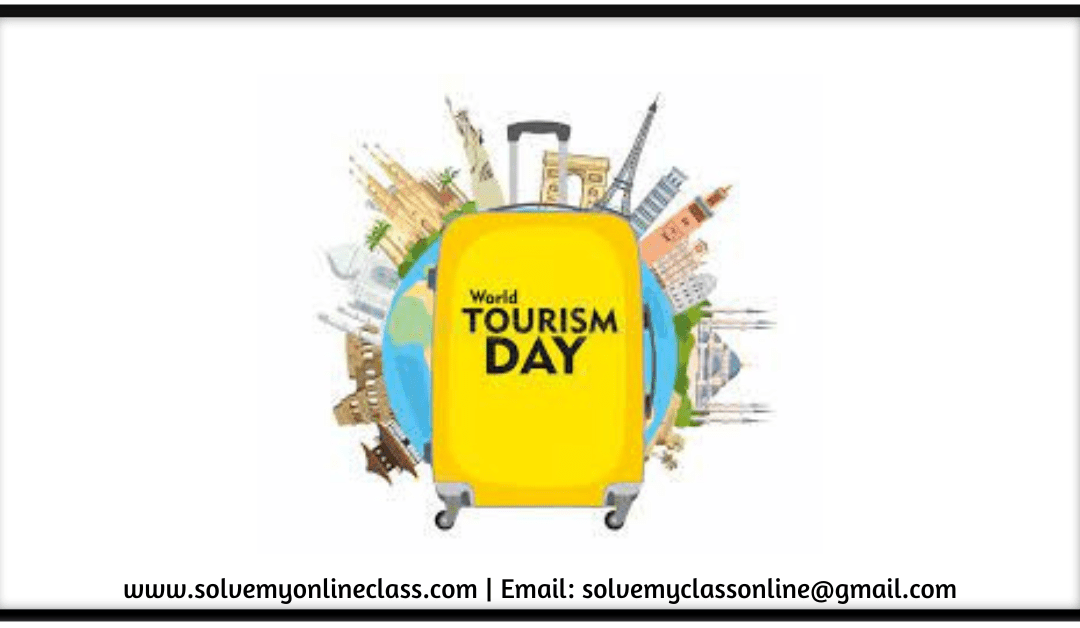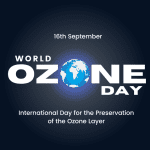World Tourism Day is celebrated annually on the 27th of September to promote consciousness among the worldwide society of the significance of tourism and its political, traditional, and communal economic value. Furthermore, World Tourism Day has been an international observance day promoting awareness regarding tourism’s political, cultural, social, and economic importance and the contribution that this industry could make to reach sustainable development goals. In addition, the color of World Tourism Day is blue, and some of the crucial elements of the tourism sector are accessibility, attraction, activities, services, and accommodation. National ecotourism certification programs are being implemented in Estonia, Kenya, Australia, Costa Rica, and Sweden.
The background of World Tourism Day
- 27th September had been chosen because in 1970, the United Nations World Tourism Organization (UNWTO) statutes had been adopted, and such statutes had been regarded as a milestone in worldwide tourism.
- Since 1980, the United Nations World Tourism Organization has celebrated World Tourism Day as global observance on the 27th of September.
- The late Ignatius Amaduwa Atigbi, a Nigerian national, had been the one who recommended the idea of marking the twenty-seventh September of each year as World Tourism Day, and he was ultimately identified for his contribution in 2009.
- Thomas Cook had been regarded as the father of tourism. He was an English modernizer of the conducted tour and founder of Thomas Cook and Son, a global travel agency he could be said to have discovered present tourism.
- Mary Jean Corbett, known as the mother of Jim Corbett and had been practically the mother of tourism activities in the hill town because she established its first accommodation facilities for visitors.
The subject matter of World Tourism Day
- World Tourism Day’s theme in 2022 has been ‘Rethinking Tourism.’
- The official World Tourism Day celebration will take place at Bali islands in Indonesia on 27th September 2022. It will bring to light the shift toward tourism being identified as a critical pillar of progress, growth, and development.
- The covid-19 pandemic depicted the crucial requirement for changing the tourism sector, and in the present times, human beings finally celebrate World Tourism Day because worldwide tourism is recovering slowly.
- The tourism sector mainly integrates five activities groups: recreation, transportation, retail or catering, travel-oriented services, and lodgings.
The scales of World Tourism Day
- Tourism improves the profits and incomes of the economy, creates a lot of work, plants a sense of traditional exchange between the residents and foreigners, and develops a nation’s infrastructure.
- The total number of works created by tourism in several areas has been important, and tourism has been crucial for the success of many economies worldwide.
- Such jobs have been a portion of the tourism industry, including the health, communication, agricultural, and educational sectors.
- The government that puts faith in tourism for a more significant percentage of its income invests a lot in the nation’s structure.
The points of World Tourism Day
- This tourism has a greater scope concerning foreigners for learning about the newest culture, and tourism also creates many opportunities for local human beings.
- Several tourists travel across the whole universe to experience the hosting location’s traditions, various cultures, and gastronomy. This has been more profitable for local stores, shopping centers, and restaurants.
- The citizens experience the facilities that come with tourism in their nation, and tourism enables the young entrepreneurs to launch the latest commodities and services, which could not be sustainable for the domestic population of the citizens alone.
The features of World Tourism Day
- These foreign tourists bring traditional enrichment and diversity to the hosting nation, and the conferences, exhibitions, and events generally attract foreigners.
- The governments want more and more tourists to visit their nation, which means advanced and safe benefits have been essential. This leads toward the latest highways, roads, newest airports, improved public spaces, developed parks, and probably better hospitals and schools.
- The organizing authorities generally acquire profits from the tourism sector’s gift sales, registration fees, and sales of media copyright and exhibition spaces.




